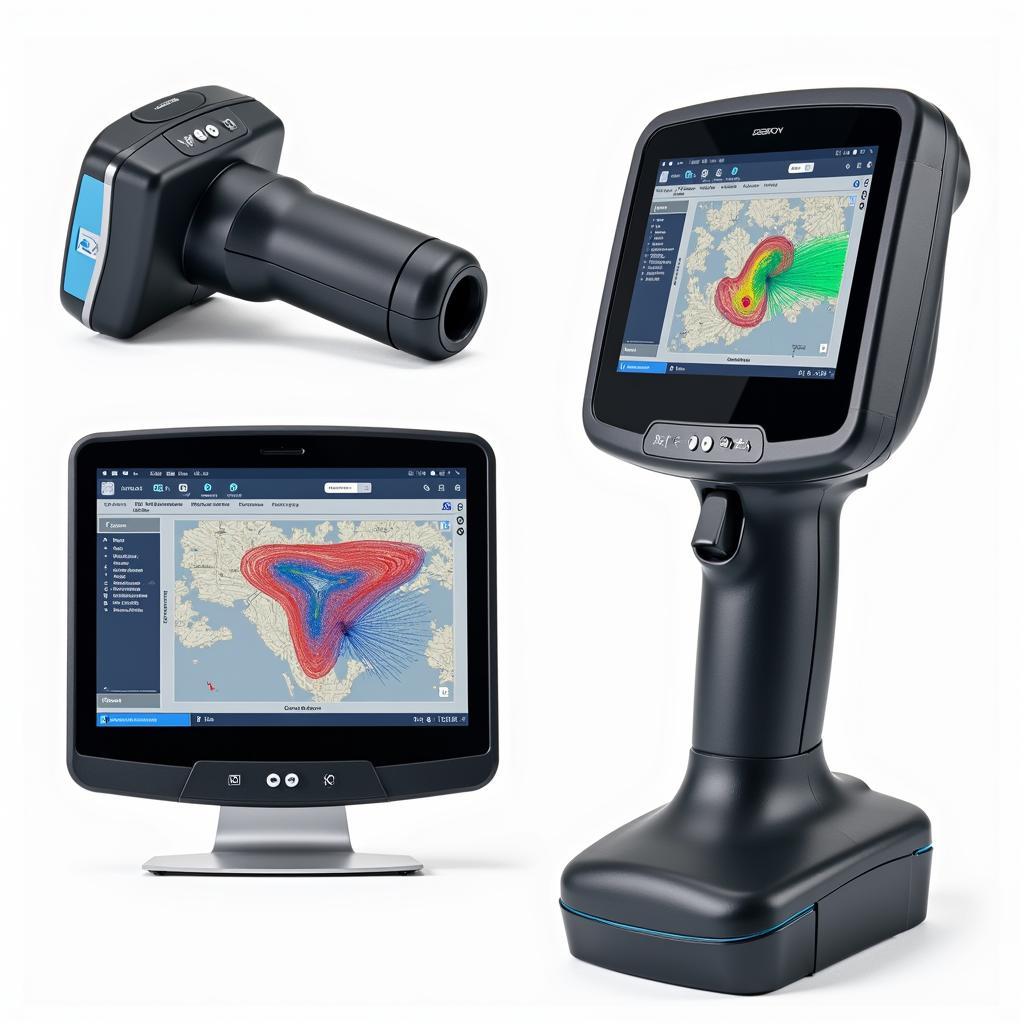Finding the perfect professional car diagnostic tool in the UK can be a daunting task, especially with the overwhelming number of options available in the market. Whether you’re a seasoned mechanic or a car enthusiast looking to up your DIY game, having the right tool can make all the difference in diagnosing and resolving car issues efficiently. This guide will delve deep into the world of professional car diagnostic tools, providing you with all the information you need to make an informed decision.
Why Invest in a Professional Car Diagnostic Tool?
Gone are the days when mechanics relied solely on their intuition and experience to troubleshoot car problems. Modern vehicles are complex machines with intricate electronic systems that require specialized tools to diagnose accurately. A professional car diagnostic tool offers a window into your car’s computer system, providing valuable data and insights that can help you:
- Pinpoint the root cause of issues: Instead of relying on guesswork, you can quickly identify the faulty sensor, component, or system triggering the warning lights on your dashboard.
- Save time and money: Accurate diagnoses prevent unnecessary part replacements and costly trips to the mechanic.
- Access advanced features: Depending on the tool, you can access manufacturer-specific data, perform coding and adaptations, and even reset service lights.
- Enhance your DIY skills: For car enthusiasts, a professional diagnostic tool can be a valuable learning tool, enabling you to understand your car’s systems better.
Key Factors to Consider When Choosing a Car Diagnostic Tool
With a plethora of options available, selecting the right professional car diagnostic tool can be overwhelming. Here are the crucial factors to consider before making your purchase:
1. Vehicle Compatibility
 Various car models and a diagnostic tool
Various car models and a diagnostic tool
The first and most crucial factor is ensuring the diagnostic tool is compatible with your vehicle. While most tools support the standard OBD-II port found in cars manufactured after 1996, some older vehicles might require specific adapters or software. If you work on a variety of car makes, opting for a tool with broad compatibility is essential.
2. Functionality and Features
professional car diagnostic tools vary significantly in terms of functionality. Entry-level tools typically offer basic functions like reading and clearing error codes, while advanced tools provide access to live data streams, bi-directional controls, and coding capabilities. Consider your specific needs and the level of detail you require from the tool.
3. User Interface and Software
A user-friendly interface can significantly impact your diagnostic experience. Look for tools with intuitive software, clear navigation menus, and easy-to-understand data displays. Additionally, consider tools that offer regular software updates to ensure compatibility with the latest vehicle models and technologies.
4. Budget
professional car diagnostic kit uk can range in price from affordable handheld units to sophisticated high-end systems. Determining your budget upfront will help you narrow down your options and focus on tools that offer the best value for your investment.
5. Brand Reputation and Support
Choosing a reputable brand known for quality and reliability is crucial. Reading online reviews, researching brand history, and checking customer support options can provide valuable insights into the tool’s long-term performance and after-sales service.
Types of Professional Car Diagnostic Tools
The market offers a diverse range of professional car diagnostic tools, each catering to different user needs and budgets. Some of the most common types include:
1. Code Readers
As the name suggests, code readers are basic diagnostic tools that primarily read and clear error codes stored in your car’s ECU (Electronic Control Unit). They are generally affordable and user-friendly, making them suitable for car owners who want to perform basic diagnostics.
2. Scan Tools
 A modern, advanced car scan tool
A modern, advanced car scan tool
Scan tools offer a step up from code readers, providing more in-depth diagnostic capabilities. They can access live data streams from various sensors, display graphs and charts, and offer some level of bi-directional control for specific components.
3. OEM-Level Scanners
OEM (Original Equipment Manufacturer) level scanners are the most advanced diagnostic tools, often used by dealerships and professional mechanics. These tools provide comprehensive access to all vehicle systems, including manufacturer-specific data, coding functions, and advanced troubleshooting capabilities.
Conclusion
Investing in a professional car diagnostic uk can be a wise decision for both car owners and professionals. It empowers you to take control of your vehicle’s maintenance, diagnose problems accurately, and save time and money in the long run. By carefully considering the factors discussed above, you can choose the right tool that best suits your needs and budget, making car diagnostics simpler and more efficient.

Leave a Reply